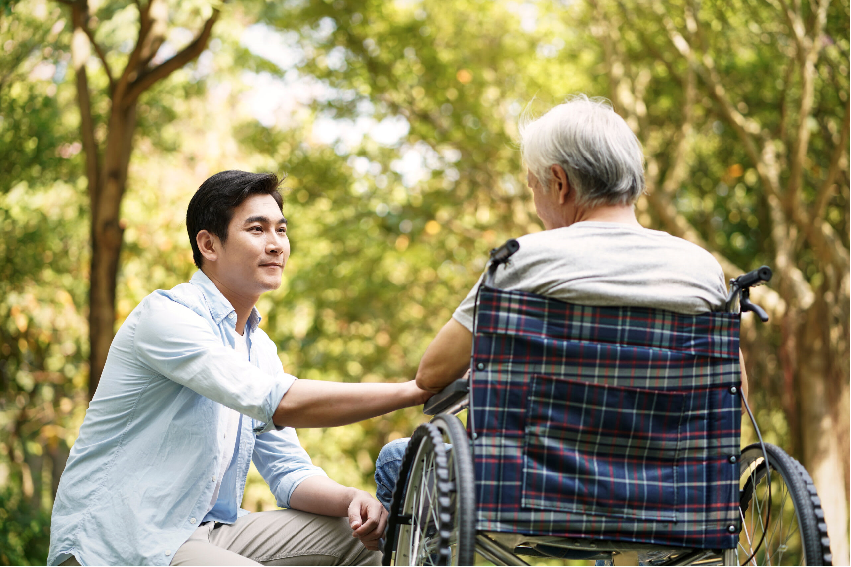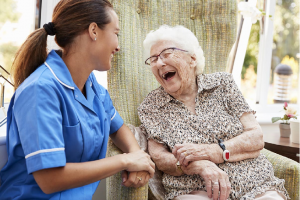
13 Mar Let’s put a better home for our elderly
The COVID-19 pandemic has shown that the elderly living in nursing homes were the most vulnerable and therefore the deadliest. The first person to die from COVID-19 in Canada was an 80-year-old resident of a long-term care home in Vancouver. Across Canada (and even the world), entire facilities were infected and then closed, or perhaps the internal spread of the virus was facilitated by a closure. According to the Canadian Ministry of Health[1], 80% of all VIDOC-19 cases were related to community-level transmission.
So what can we do to change? What have you changed?

Intensive care is the shining star of universal health care in Canada. Chronic care and long-term care, less. Pandemics, zero. The unforeseen or unexpected consequences of the pandemic will force a revolution in long-term care. We have to take better care of our elders because one thing is certain in life: we will all be older.
Employees were afraid to come to work
Eldercare is our ultimate gift, a dedication, an act of love. To be so afraid of contracting a disease and passing it on to others, our families and the patients we care for must be painful. How do we help our healthcare workers, our frontline caregivers, get back to work? How can we encourage more people to choose this career? We need to protect them, their families, and their patients. Ongoing testing and assessment of the health of caregivers and the people they care for will help identify those in need of special care, reduce stress, and improve services for those in need.
Unfed, dirty, lonely, and neglected patients
It is clear that those who need help should receive it. The indignity of wearing diapers is only overcome if you remain unoccupied and dirty for days on end. We need to alert caregivers, escalate issues, and warn families involved at all times. This sense of decency transcends religions, cultures, languages, and nationalities. There are digital health sensors that can detect humidity, general health, falls, and panic. Let’s use them.
Caregivers and families are unable to communicate with their loved ones
The pain of not knowing the status of the parents is extremely disconcerting. There’s no reason why we can’t remotely monitor our loved ones. Video cameras, smartphones, standalone devices exist to help us communicate all the time, anywhere in the world. We have to look at privacy rules and laws and relax them in the name of decency. Caregivers and employees must get used to being watched, respecting the right of families to watch over their loved ones. Access to the family should be a fundamental right, not a privilege specified by bureaucrats.
In what world would we believe that a foreigner, a volunteer with no prior experience, should have full access to our loved ones, quarantined or not? Caregivers must always be in contact with the people in their charge. A recent case of a volunteer who did not know how to get an elderly man to eat ended with the elderly man being admitted to the hospital for malnutrition and dehydration, without COVID-19. Once again, caregivers, whether family or professional, know the people they are caring for best.
Medication adherence has stopped
One of the main activities of any caregiver is the management and distribution of medications, often four times a day, to each patient. Chronic care patients and the elderly are the most vulnerable to the effects of VIDOC-19, but maintaining good health through good adherence, cleanliness, and nutrition is the most difficult to manage during a pandemic. We need to complement manual activities with digital health. This means using automated medicine dispensers, video conferencing, telemedicine, fall detection sensors and vital signs measurements to manage, maintain and report in real-time.
Automation is not afraid of a virus. Automation enables caregivers to reduce stress and better monitor and manage a population of chronic and elderly patients. Let’s better use the technology we already have to better care for our elders, our pioneers, our parents.
A better home for the elderly
What constitutes a better residence? I don’t care about the physical construction, the real estate, or the decoration of an old man’s room. I focus on the real care and well-being of elderly people so that they can lead a long, healthy, and happy life. After spending most of their lives as productive and active members of society, it is now in their older years that society must reciprocate and care for them.
In an ideal world, older people need care 24 hours a day. The maximum use of automation will alleviate many of the problems of communication, surveillance, medication use, and care. However, there is no substitute for nurturing touch, the love of a family member, the care and attention of the family. We have to order a circle of care, including family, caregivers, and automation where possible.
You may also be interested in How should the elderly home be?



Sorry, the comment form is closed at this time.